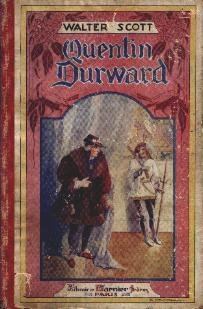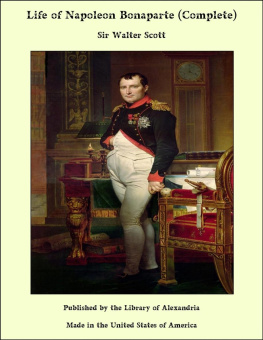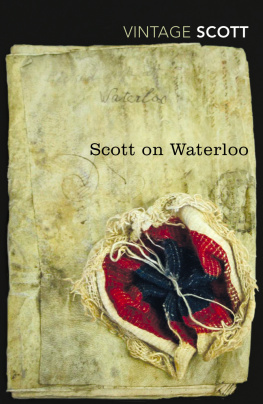Walter Scott - The Monastery
Here you can read online Walter Scott - The Monastery full text of the book (entire story) in english for free. Download pdf and epub, get meaning, cover and reviews about this ebook. genre: Adventure. Description of the work, (preface) as well as reviews are available. Best literature library LitArk.com created for fans of good reading and offers a wide selection of genres:
Romance novel
Science fiction
Adventure
Detective
Science
History
Home and family
Prose
Art
Politics
Computer
Non-fiction
Religion
Business
Children
Humor
Choose a favorite category and find really read worthwhile books. Enjoy immersion in the world of imagination, feel the emotions of the characters or learn something new for yourself, make an fascinating discovery.

- Book:The Monastery
- Author:
- Genre:
- Rating:3 / 5
- Favourites:Add to favourites
- Your mark:
- 60
- 1
- 2
- 3
- 4
- 5
The Monastery: summary, description and annotation
We offer to read an annotation, description, summary or preface (depends on what the author of the book "The Monastery" wrote himself). If you haven't found the necessary information about the book — write in the comments, we will try to find it.
The Monastery — read online for free the complete book (whole text) full work
Below is the text of the book, divided by pages. System saving the place of the last page read, allows you to conveniently read the book "The Monastery" online for free, without having to search again every time where you left off. Put a bookmark, and you can go to the page where you finished reading at any time.
Font size:
Interval:
Bookmark:
THE MONASTERY.
by Sir Walter Scott
INTRODUCTION(1830.)
It would be difficult to assign any good reason why the author of Ivanhoe, after using, in that work, all the art he possessed to remove the personages, action, and manners of the tale, to a distance from his own country, should choose for the scene of his next attempt the celebrated ruins of Melrose, in the immediate neighbourhood of his own residence. But the reason, or caprice, which dictated his change of system, has entirely escaped his recollection, nor is it worth while to attempt recalling what must be a matter of very little consequence.
The general plan of the story was, to conjoin two characters in that bustling and contentious age, who, thrown into situations which gave them different views on the subject of the Reformation, should, with the same sincerity and purity of intention, dedicate themselves, the one to the support of the sinking fabric of the Catholic Church, the other to the establishment of the Reformed doctrines. It was supposed that some interesting subjects for narrative might be derived from opposing two such enthusiasts to each other in the path of life, and contrasting the real worth of both with their passions and prejudices. The localities of Melrose suited well the scenery of the proposed story; the ruins themselves form a splendid theatre for any tragic incident which might be brought forward; joined to the vicinity of the fine river, with all its tributary streams, flowing through a country which has been the scene of so much fierce fighting, and is rich with so many recollections of former times, and lying almost under the immediate eye of the author, by whom they were to be used in composition.
The situation possessed farther recommendations. On the opposite bank of the Tweed might be seen the remains of ancient enclosures, surrounded by sycamores and ash-trees of considerable size. These had once formed the crofts or arable ground of a village, now reduced to a single hut, the abode of a fisherman, who also manages a ferry. The cottages, even the church which once existed there, have sunk into vestiges hardly to be traced without visiting the spot, the inhabitants having gradually withdrawn to the more prosperous town of Galashiels, which has risen into consideration, within two miles of their neighbourhood. Superstitious eld, however, has tenanted the deserted groves with aerial beings, to supply the want of the mortal tenants who have deserted it. The ruined and abandoned churchyard of Boldside has been long believed to be haunted by the Fairies, and the deep broad current of the Tweed, wheeling in moonlight round the foot of the steep bank, with the number of trees originally planted for shelter round the fields of the cottagers, but now presenting the effect of scattered and detached groves, fill up the idea which one would form in imagination for a scene that Oberon and Queen Mab might love to revel in. There are evenings when the spectator might believe, with Father Chaucer, that the
Queen of Faery,
With harp, and pipe, and symphony,
Were dwelling in the place.
Another, and even a more familiar refuge of the elfin race, (if tradition is to be trusted,) is the glen of the river, or rather brook, named the Allen, which falls into the Tweed from the northward, about a quarter of a mile above the present bridge. As the streamlet finds its way behind Lord Sommerville's hunting-seat, called the Pavilion, its valley has been popularly termed the Fairy Dean, or rather the Nameless Dean, because of the supposed ill luck attached by the popular faith of ancient times, to any one who might name or allude to the race, whom our fathers distinguished as the Good Neighbours, and the Highlanders called Daoine Shie, or Men of Peace; rather by way of compliment, than on account of any particular idea of friendship or pacific relation which either Highlander or Borderer entertained towards the irritable beings whom they thus distinguished, or supposed them to bear to humanity.In evidence of the actual operations of the fairy people even at this time, little pieces of calcareous matter are found in the glen after a flood, which either the labours of those tiny artists, or the eddies of the brook among the stones, have formed into a fantastic resemblance of cups, saucers, basins, and the like, in which children who gather them pretend to discern fairy utensils.
Besides these circumstances of romantic locality, mea paupera regna (as Captain Dalgetty denominates his territory of Drumthwacket) are bounded by a small but deep lake, from which eyes that yet look on the light are said to have seen the waterbull ascend, and shake the hills with his roar.
Indeed, the country around Melrose, if possessing less of romantic beauty than some other scenes in Scotland, is connected with so many associations of a fanciful nature, in which the imagination takes delight, as might well induce one even less attached to the spot than the author, to accommodate, after a general manner, the imaginary scenes he was framing to the localities to which he was partial. But it would be a misapprehension to suppose, that, because Melrose may in general pass for Kennaquhair, or because it agrees with scenes of the Monastery in the circumstances of the drawbridge, the milldam, and other points of resemblance, that therefore an accurate or perfect local similitude is to be found in all the particulars of the picture. It was not the purpose of the author to present a landscape copied from nature, but a piece of composition, in which a real scene, with which he is familiar, had afforded him some leading outlines. Thus the resemblance of the imaginary Glendearg with the real vale of the Allen, is far from being minute, nor did the author aim at identifying them. This must appear plain to all who know the actual character of the Glen of Allen, and have taken the trouble to read the account of the imaginary Glendearg. The stream in the latter case is described as wandering down a romantic little valley, shifting itself, after the fashion of such a brook, from one side to the other, as it can most easily find its passage, and touching nothing in its progress that gives token of cultivation. It rises near a solitary tower, the abode of a supposed church vassal, and the scene of several incidents in the Romance.
The real Allen, on the contrary, after traversing the romantic ravine called the Nameless Dean, thrown off from side to side alternately, like a billiard ball repelled by the sides of the table on which it has been played, and in that part of its course resembling the stream which pours down Glendearg, may be traced upwards into a more open country, where the banks retreat farther from each other, and the vale exhibits a good deal of dry ground, which has not been neglected by the active cultivators of the district. It arrives, too, at a sort of termination, striking in itself, but totally irreconcilable with the narrative of the Romance. Instead of a single peel-house, or border tower of defence, such as Dame Glendinning is supposed to have inhabited, the head of the Allen, about five miles above its junction with the Tweed, shows three ruins of Border houses, belonging to different proprietors, and each, from the desire of mutual support so natural to troublesome times, situated at the extremity of the property of which it is the principal messuage. One of these is the ruinous mansion-house of Hillslap, formerly the property of the Cairncrosses, and now of Mr. Innes of Stow; a second the tower of Colmslie, an ancient inheritance of the Borthwick family, as is testified by their crest, the Goat's Head, which exists on the ruin; a third, the house of Langshaw, also ruinous, but near which the proprietor, Mr. Baillie of Jerviswood and Mellerstain, has built a small shooting box.
Font size:
Interval:
Bookmark:
Similar books «The Monastery»
Look at similar books to The Monastery. We have selected literature similar in name and meaning in the hope of providing readers with more options to find new, interesting, not yet read works.
Discussion, reviews of the book The Monastery and just readers' own opinions. Leave your comments, write what you think about the work, its meaning or the main characters. Specify what exactly you liked and what you didn't like, and why you think so.




